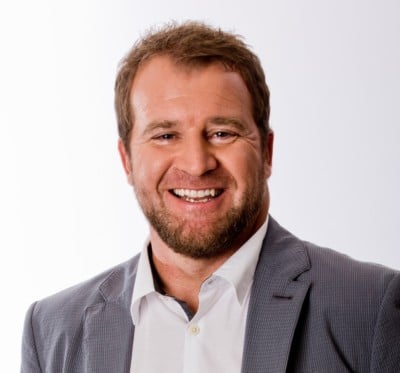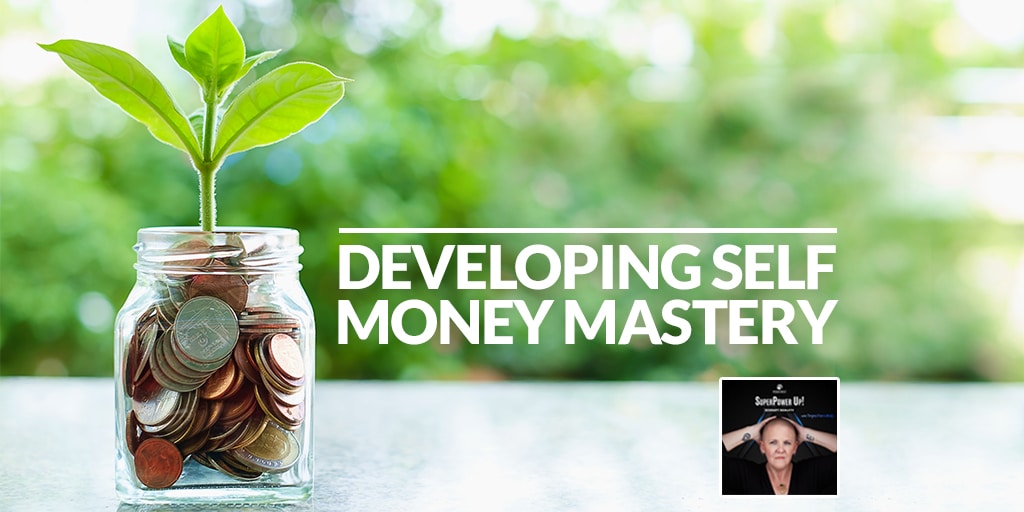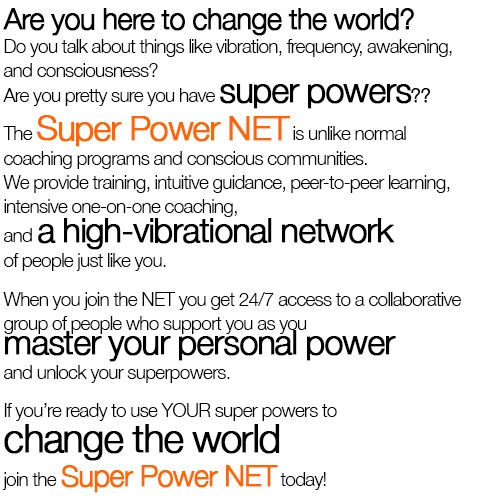
Hello, everyone! This is Tonya Dawn Recla, your Super Power Expert, and I’m so excited to have with us today Christopher Cumby. We met at the New Media Summit. I was there supporting Neva as an Icon of Influence, and Christopher was one of the icons there. What I love about his approach to things in his, if you look at his bio and stuff, I love the fact that he considers himself the kick-ass sales guy, right? The reason why I’m chuckling about this is because, before the show, and this is a common conversation in the entrepreneurs circles is, “How do you work the sales and money conversation in when you’re driven by passion or when you have been gifted with this mission in the world?” and nobody really wants to add in that piece of it. But without that piece, obviously, business is ineffective. So, I think it’s a super crucial dialogue.
We’re going to talk today about developing self-money mastery because it’s very challenging to truly do your work in the world if you’re tied into some sort of victimization or abdication because of survival fears, and survival fears typically get connected into the money dialog. So, becomes a complex thing to look at, but it’s also the most simple thing because, as you continue to go about this journey and expand out and connect more deeply into who you are, those fears come forward to be looked at. Then, we have an option about whether or not to continue them.
So, I’m really excited about some of the work that Chris does and how he works with people to make sure that that dialogue is in place so that the business can be successful so that the mission can actually happen and you can do your work in the world. So, without further ado … Oh, Chris is also one of the hosts of Think Bold, Be Bold and runs around in the podcasting circles and helps people get their message out in that way and promote what they’re doing to the world. So, we’re kind of all cut from the same cloth over here. So, I’m super excited to have Chris join us today. Welcome, Chris.

I think it’s the ability to ask really good questions is my super power.
Well, thank you, Tonya. It’s nice to connect with you again, absolutely.
Always, always. So, we jump right in on these shows and ask, “What are your super powers?
I’m a great question. I think it really comes down to questions. I have been in sales a lot of years, and I teach that aspect of business and coaching and so forth, but I think it’s the ability to ask really good questions is my super power.
I’m laughing. I love it. You’re absolutely right. Coming out of the counterintelligence arena and the due diligence and vetting stuff, what we found was our willingness to follow questions was really our secret sauce, you know? It’s not the answer. Oftentimes, when we teach people, we tell them, “We don’t necessarily ask questions just for the answers. We’re asking questions for a response.” I think that that’s an amazing technique to utilize, but how did you start to come to use that in business?
Definitely. Probably the first question is, “What problem can I solve?” If I follow my entrepreneurial career, because it started really, really early. I was seven years old and because my parents weren’t, necessarily, well-off, but we weren’t poor either. We were somewhere in the middle. But we always had stuff. My dad was always adamant that if I want something, I have to earn it. It allowed me to think of ways that I could utilize a skill at seven years old to go do something, you know? Often, it was chores, and those led to allowances.
Then, obviously, I wanted more than what my allowance would give me, so I had to figure out a real business. I collected. Probably for you and me, we remember those days of the glass bottles from soda pop companies. Coca Cola, Pepsi Cola, you name it out there, they used glass bottles, and obviously, today it’s plastic, but back then, you could return them for money back, and not so dissimilar to some of the beer bottles and things that still have that around the world. I also knew, based on my dad, that it was a real big pain in the butt. So, it was a problem. You have to buy it, but then you got to bring them back and you’ve got to collect the money and all that jazz.
So, he, I asked him if I can start doing it for our neighborhood and could he build me, because my dad was really great at building stuff, “Can you build me a wagon that can fit a lot of bottles so that I can go to every person on the street and collect it and then collect a commission because I’d actually bring them back money.” So, it became like that win-win, right? I’m going to give you some money but I’m going to keep some of it as well, but I’ll do the service in between.

Until I know what a person needs, then I can’t really help them solve their problems.
So, that really led to, the first thing is just questioning “What can I do to provide a service?” and then questions for me now become “How do I get to know what someone’s needs are?” Until I know what a person needs, then I can’t really help them solve their problems. In business, it’s usually, in my case now, it’s “We need to make more revenue. So, I always question their internal process first because if you have a good business or a service, typically, then the issue is you just don’t have a great way of attracting more business. Let’s look at the sales side of things or marketing. I just ask questions, and that’s led to a great consulting career, but now I’m moving into some really interesting things that have led me to just keep questioning stuff and keep connecting as well. That’s another great skill.
Very cool.
And make sure that, like, we met. We didn’t know exactly how, but I guarantee something will start to spin as we get to know each other and how we can service or provide referrals is always a great way, right?
Well, I agree completely and I think that that’s a severely underutilized technique in business. I mean, we didn’t really do formal marketing for a long time because our entire businesses were originally created off a referral and relationships, and that’s a hugely viable way to get started in business, but also, it teaches you the power of being present and asking those questions and making sure that you’re listening and that you’re able to offer something of value to people. Because if not, you’re not going to have much of a business for very long.
But we’re going to take a quick break. We’re talking today with Christopher Cumby about developing self-money mastery. When we come back from the break, I want to take some of these ideas that he’s presented about questioning and asking and really take it back into how can you use those techniques to move yourself further along in mastering the money dialogue and the sales dialogue, But before we do that, Christopher, where can people go to find out more about you?
Well, I’m all over social media, @SuccessPlaybook, but probably my website is the best place. You can go to kickasssalesguy.com or, of course, my full name, Christopher Cumby.
Perfect. Well, we’ll take a quick break, and stay with us because when we come back, we’re going to show you how you can move forward in the money conversation. Stay tuned.
Then, obviously, I wanted more than what my allowance would give me, so I had to figure out a real business. I collected. Probably for you and me, we remember those days of the glass bottles from soda pop companies. Coca Cola, Pepsi Cola, you name it out there, they used glass bottles, and obviously, today it’s plastic, but back then, you could return them for money back, and not so dissimilar to some of the beer bottles and things that still have that around the world. I also knew, based on my dad, that it was a real big pain in the butt. So, it was a problem. You have to buy it, but then you got to bring them back and you’ve got to collect the money and all that jazz.
So, he, I asked him if I can start doing it for our neighborhood and could he build me, because my dad was really great at building stuff, “Can you build me a wagon that can fit a lot of bottles so that I can go to every person on the street and collect it and then collect a commission because I’d actually bring them back money.” So, it became like that win-win, right? I’m going to give you some money but I’m going to keep some of it as well, but I’ll do the service in between.
So, that really led to, the first thing is just questioning “What can I do to provide a service?” and then questions for me now become “How do I get to know what someone’s needs are?” Until I know what a person needs, then I can’t really help them solve their problems. In business, it’s usually, in my case now, it’s “We need to make more revenue. So, I always question their internal process first because if you have a good business or a service, typically, then the issue is you just don’t have a great way of attracting more business. Let’s look at the sales side of things or marketing. I just ask questions, and that’s led to a great consulting career, but now I’m moving into some really interesting things that have led me to just keep questioning stuff and keep connecting as well. That’s another great skill.
Very cool.
And make sure that, like, we met. We didn’t know exactly how, but I guarantee something will start to spin as we get to know each other and how we can service or provide referrals is always a great way, right?
Well, I agree completely and I think that that’s a severely underutilized technique in business. I mean, we didn’t really do formal marketing for a long time because our entire businesses were originally created off a referral and relationships, and that’s a hugely viable way to get started in business, but also, it teaches you the power of being present and asking those questions and making sure that you’re listening and that you’re able to offer something of value to people. Because if not, you’re not going to have much of a business for very long.
But we’re going to take a quick break. We’re talking today with Christopher Cumby about developing self-money mastery. When we come back from the break, I want to take some of these ideas that he’s presented about questioning and asking and really take it back into how can you use those techniques to move yourself further along in mastering the money dialogue and the sales dialogue, But before we do that, Christopher, where can people go to find out more about you?
Well, I’m all over social media, @SuccessPlaybook, but probably my website is the best place. You can go to kickasssalesguy.com or, of course, my full name, Christopher Cumby.
Perfect. Well, we’ll take a quick break, and stay with us because when we come back, we’re going to show you how you can move forward in the money conversation. Stay tuned.
To listen to the entire show click on the player above or go to the SuperPower Up! podcast on iTunes.
Podcast: Play in new window


